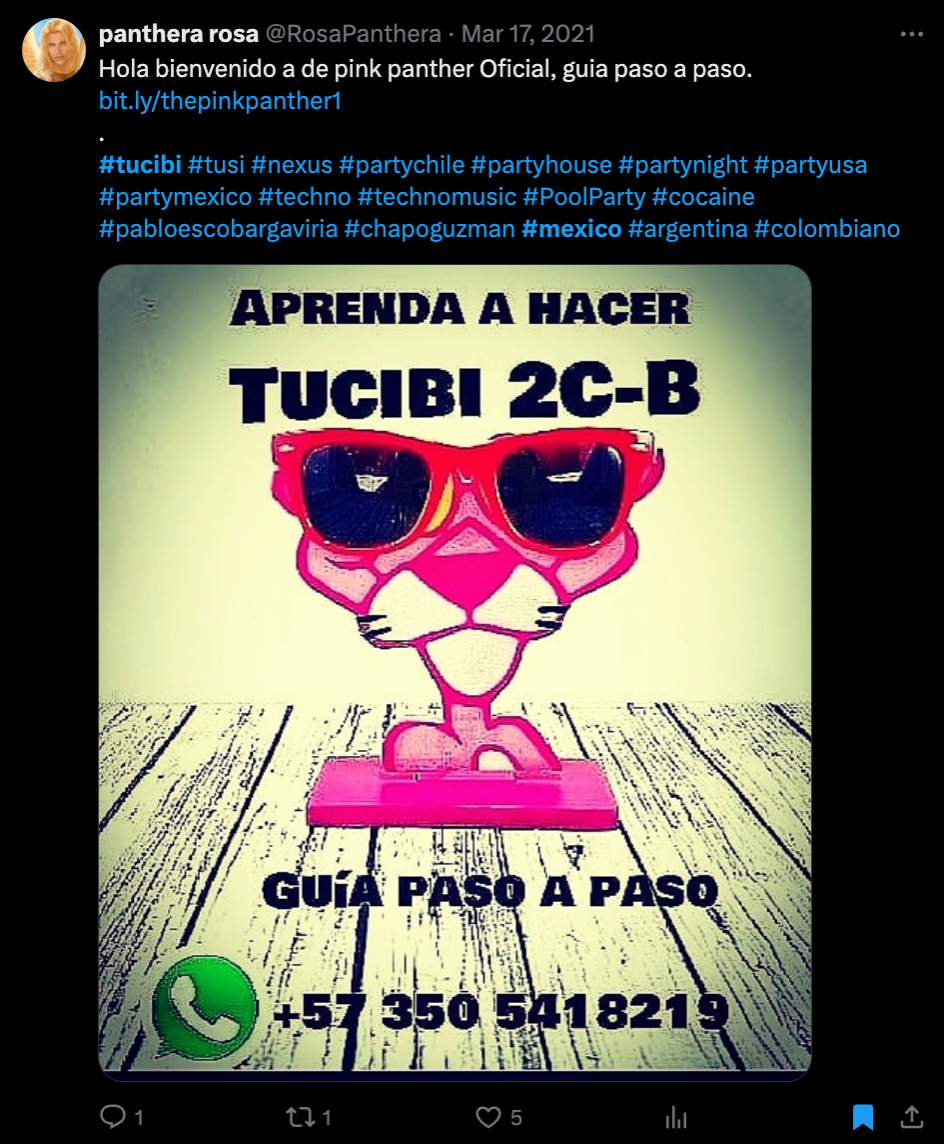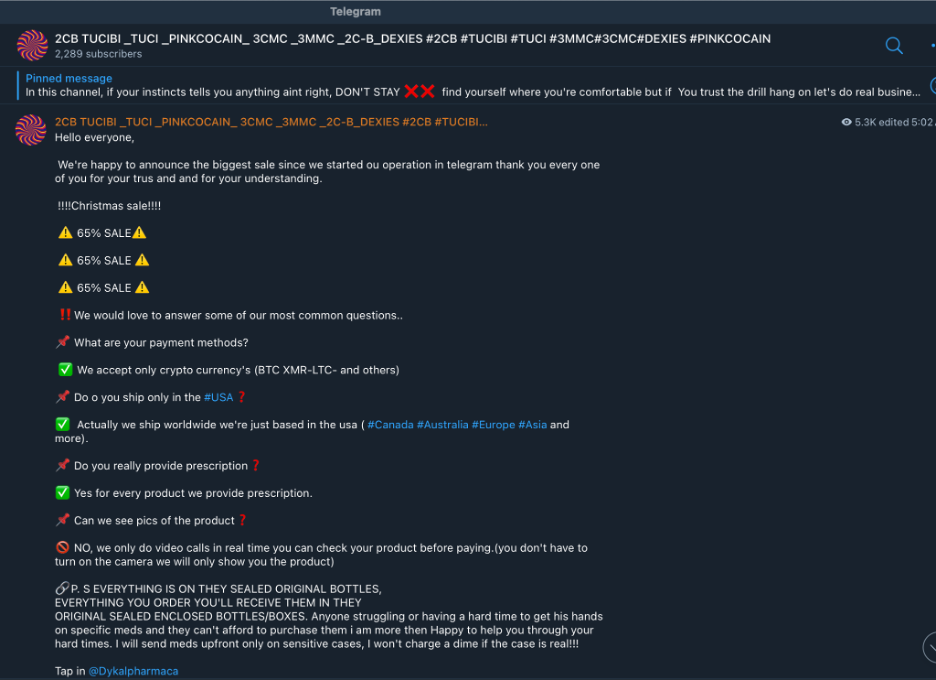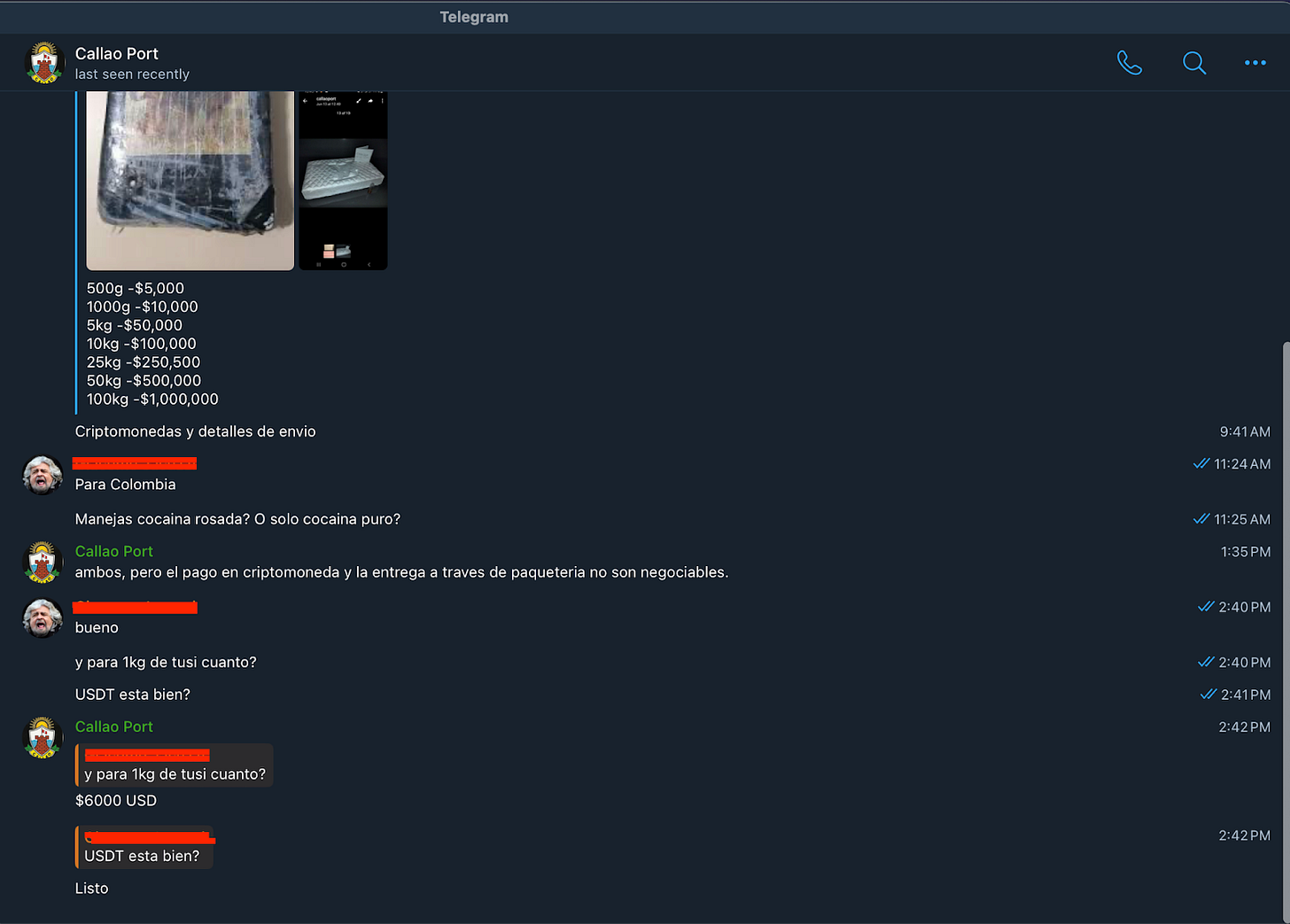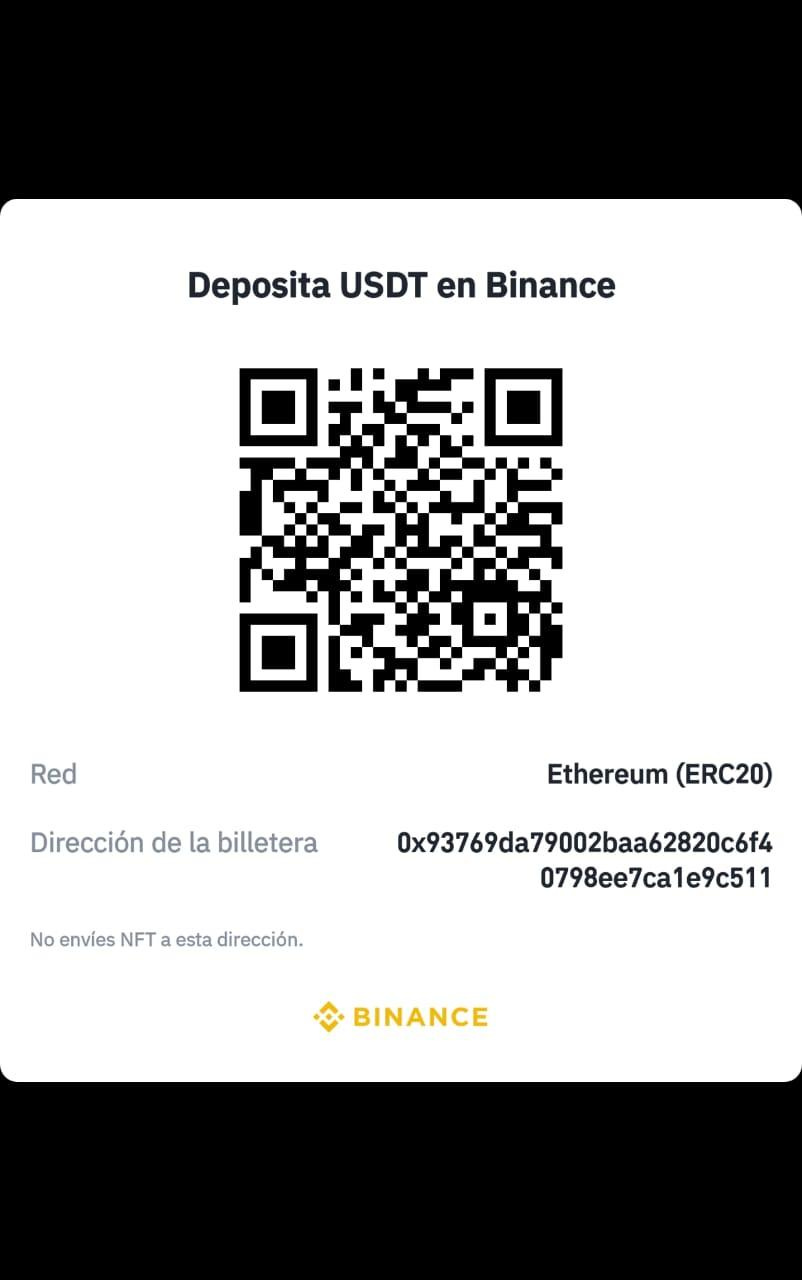Soloket Floods The Darknet
Part III: How do organized crime groups in Latin America trade pink cocaine and its precursors?
Tusi merchants sell their product to buyers using a combination of darknet market places, Telegram and Twitter/X, and crypto exchanges like Binance and Huobi. Merchants often promote their products online using an anonymous Telegram or Twitter/X account. In some cases, the seller arranges the sale using a WhatsApp phone number, but increasingly sellers are using private channels on Telegram to avoid phone number exposure.
Ketamine often trades in the Latin American drug markets for around USD$100 and pink cocaine trades from between USD$35 and $55. Merchants prefer accepting payment in cryptocurrencies because of the international nature of the cross-border money laundering techniques used by multiple parties in the synthetics trade.
In the 2020-2022 period, small-scale merchants in Bogotá, Quito and Lima began appearing and various social media platforms. They often sold recipes for making tusi or offered small quantities of Peruvian ketamine on platforms like Twitter/X and Facebook.
Accounts like this one appeared during the COVID-19 pandemic. This one [at]RosaPanthera shows a Quito, Ecuador-based merchant selling pink cocaine and recipe instructions in exchange for digital money (i.e. bitcoin and crypto).
Tusi is specifically offered as a product by this merchant. The merchant is based in Quito, Ecuador but posts a Colombian phone number and asks to be contacted via Meta’s WhatsApp platform.
From 2022-2024, The Tusi Files identified a migration of tusi merchants from platforms like Meta’s Facebook and Twitter/X to Telegram and darknet marketplaces like Ahmia. Large-scale, export-oriented merchants tend to prefer Telegram, Ahmia and other darknet marketplaces.
For example, the Telegram account DykalPharmaca offered pink cocaine alongside other drugs like fentanyl M30s and Xanax pills in the 2023-2024 period.
DykalPharmaca is a marketplace offering drugs sales to the United States, Australia, Europe and Asia. This post is from 18 December 2022. It shows that the merchant DykalPharmaca is based in the United States and ships worldwide. It also shows that the seller accepts Bitcoin (BTC) and Monero (XMR).
What is particularly interesting about this DykalPharmaca is that they are offering Peruvian-based agrochemical firm Labodec’s Soloket brand of ketamine and Peruvian-based pharmaceutical company Montana’s Halatal KT ketamine.
These two brands of ketamine - Soloket and Halatal KT - appear consistently on the darknet and online marketplaces. Both are manufactured by Peruvian-based companies. During the 2020-2024 period, there were few to no signs of Colombian-made ketamine in the Colombian pink cocaine marketplace; it was almost exlusively Peruvain ketamine.
In the case of DykalPharmaca, these shipments of Soloket and Halatal KT appear to be boxed and sent from a destination overseas to the United States. DykalPharmaca’s Telegram was written in plain English and there are no signs of Spanish or other languages. As of the end of 2024, it had been deactivated and is now inaccessible.
On the Ahmia darknet marketplace a 2024 search for pink cocaine returns results for Peruvian Pink Cocaine. One seller advertises Peruvian Pink Cocaine on a marketplace named after Lima’s port of Callao. In this case, the Telegram tusi merchant is Callao Port with handle: [at]callaoport_1.
Callao Port is a Lima-based pink cocaine exporter. The price per 1kg is USD$6,000, or 60% that of conventional Peruvian White Cocaine, which sells for USD$10,000. And yet, on the street in New York and Amsterdam the two tend to sell for around the same price per gram. Pink cocaine is therefore a higher margin product. This confirms what The Tusi Files heard from Medellín-based sources during the 2020-2021 period: margins on pink cocaine are much fatter than conventional white cocaine.
Callao Port accepts payment in USDT, a stablecoin managed by El Salvador-based firm Tether. There are two addresses. One is a ERC-20 address (settles on the Ethereum network) and the other is a TRC-20 address (settles on the TRON network):
Ethereum address 0x8A04A3917dcD3b4BF44b5e5a3A8893c37ba116C8 corresponds to an account that handled its first transactions in August 2024.
TRON address TPxqcU6WZLZGGZYzJRns1TGFmimrE5ySUA also corresponds to an account that first handled transactions in August 2024.
Tusi merchants usually finalize sales using Whatsapp phone numbers traded on Telegram. A separate, Colombia-based tusi merchant promoted Soloket brand ketamine for COP450,000 pesos (USD$135 at 3,400 pesos to USD) on their WhatsApp status. With the exchange fees priced in, tusi merchants asked for USD137 in Tether’s USDT digital dollars.
Tusi merchants are not necessarily Tether merchants. A source procuring ketamine from a Colombian tusi marketplace told The Tusi Files that the merchant arranging the ketamine sale was a separate merchant from the individual accepting the USDT. This second merchant charged around a 10% fee for accepting the USDT from the buyer and exchanging it into COP for the seller. Where the spot rate for USD:COP was around 3,850 pesos at the time of the sale, the Tether merchant traded at USD:COP 3,400 pesos.
Merchants prefer Tether’s USDT stablecoin issued on the TRON blockchain to accept cash for payment because it is fast and cheap. In this instance, the merchant offered a buyer an Ethereum address and a Tron address for accepting USDT. The exchange often used in pink cocaine markets is Binance because Binance is popular in Colombia and Venezuela. Sources have also reported to The Tusi Files that merchants use Huobi and Bybit as popular exchanges for synthetics trading.
The Tether merchant’s phone number corresponds to a VKontakte (VK) account. VK is a Russian online social media platform based in St. Petersburg and created by Telegram founder Pavel Durov. It is primarily used by Russian speakers. One possibility is that Latin American synthetic drugs merchants are using Russian darknet operatives to launder money from buyers in the US and Europe to sellers in Mexico, Colombia, and other Latin American countries with synthetics exports.
This article is Part III of a series called The Tusi Files. The Tusi Files is an investigation into the evolution of the Latin American Mafia’s emerging pink cocaine market.












